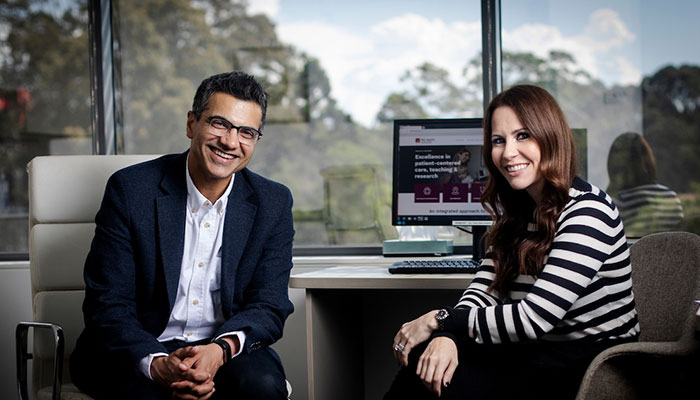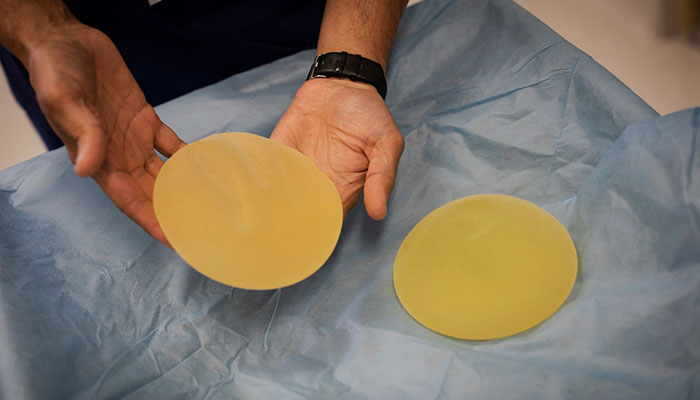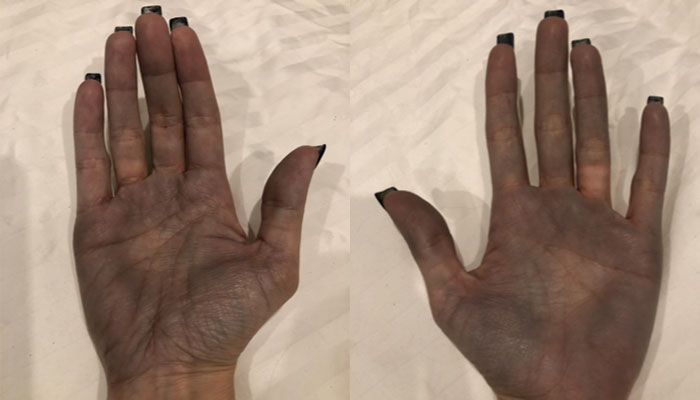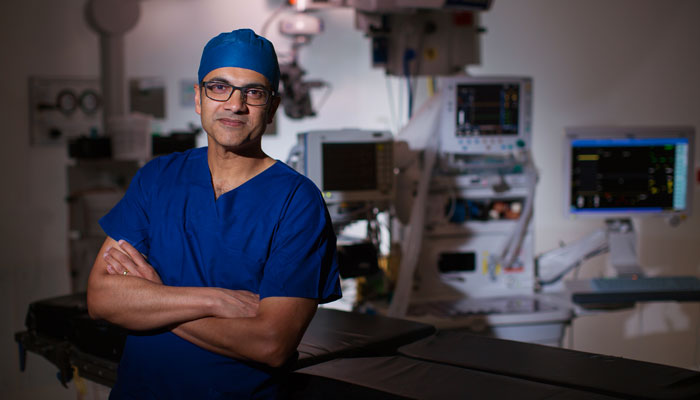Right after getting breast implants nine years ago, Shelly Rafferty went from being a vibrant and healthy 34-year-old to someone with multiple chronic health complications.
She developed hardening of her breast tissue (called capsular contracture), endured two strokes, spontaneous tears in both carotid arteries in her neck, tears in her esophagus and chronic eye, joint, chest, back and hip pain.
Every time she boarded a plane, Rafferty had to travel with an oxygen concentrator because of low oxygen saturation and constant shortness of breath. Her hands were always blue-black. Specialists were at a loss to explain the cause of her ill health.
In March, Professor Anand Deva at Macquarie University removed Rafferty’s breast implants.
The message is clear from my research and from my clinical work: some of these women’s BII symptoms coincided or subsequently developed after getting breast implants.
The operation almost immediately transformed her life. Her injuries healed and her pain vanished.

Life-saver: Sydney mother-of-three, 34 year-old Shelly Rafferty spent four years looking for answers to what was causing a range of debilitating illnesses - when Professor Anand Deva removed her breast implants her symptoms vanished. Photo credit: Michael Amendolia.
“I feel like I have my life back,” she says. “I can take my kids to school and dance classes, walk my dog, go out for dinner and not go to bed at 7pm – things most people take for granted. Money can’t buy what I’ve got back.”
Major complications
Every year, about 20,000 women have breast implants in Australia, either for enhancement or reconstruction after cancer. Major complications and associated conditions like Rafferty’s – now increasingly referred to as Breast Implant Illness (BII) – are becoming more common, says Deva, head of Cosmetic, Plastic and Reconstructive Surgery at Macquarie University Hospital.
“The message is clear from my research and from my clinical work: some of these women’s BII symptoms coincided or subsequently developed after getting breast implants,” Deva says.
“And when you take out the implant and the surrounding capsule (tissue around the implant), a proportion of these women report their symptoms disappear and they feel miraculously cured. The challenge is to work out which women and why.”

Illness: Professor Anand Deva removes women's implants every week, as mounting evidence shows that removal alleviates symptoms being experienced by recipients. Photo credit: Michael Amendolia.
To turn this into quantitative research and establish just what the connections are between BII and the removal of implants, he’s begun a study of women with BII. He already has more than 1000 participants.
The multiple symptoms of BII can include autoimmune disease, gastritis, toxic shock, hair loss, pancreatitis, muscle and joint pain, Inflammatory Bowel Syndrome, liver dysfunction, chronic fatigue, hair loss, gallbladder disease, anxiety and depression.
“Research into BII is difficult, because it's such complex and varied symptomatology, linked to an even greater number of patient and implant variables,” Deva says.
- Please explain: Why do women get breast implants?
- Cheers to the quarantini as COVID puts new zing in the lingo
“We need to collect high quality data, analyse it and then work out why it happens, how we can treat it and, most importantly, how we can prevent it from happening in the first place.”
In the 1990s, researchers established a link between silicone breast implants and autoimmune disease which led to a temporary ban of silicone-filled implants in the US for nearly 10 years. While further studies refuted the link and allowed the reinstatement of silicone implants, some questions still remain unanswered.
The most common complication from breast implants is hardening of the breast tissue. Implants can break, crack, leak or flip and lead to the need for further surgery. Women with textured implants are at risk of developing anaplastic large cell lymphoma (ALCL) - a form of non-Hodgkin's lymphoma.
This resulted in a number of high-risk devices being banned or suspended from sale worldwide in 2019.
Warning in the US
In the US, where more than a million women have breast implants, the Food and Drug Administration (FDA) has taken a hard line. In September, it recommended manufacturers inform women of the “serious and life threatening risks” of breast implants, a so-called “black box” warning equivalent to cigarette packaging.

A mystery: specialists were at a loss to explain why Sydney mum Shelly Rafferty's hands turned black and blue - she says they went back to normal once her breast implants were removed.
The recommendations specifically detail the risks women with implants face of developing ALCL and, for the first time, list some of the symptoms of BII. This follows publication of research in September of 750 women in the US with BII and implants. It found that when implants were removed many of their symptoms subsided.
“It’s great to see the strong validation of the research we’re doing globally on implant safety in the recommendations from the FDA,” Deva says. The Australian Therapeutic Goods Authority is expected to release similar recommendations later this year.
In the meantime, every week, Deva removes women’s implants. Six months ago, he operated on Sandy Bellotti, who said she had been enthusiastic about getting breast implants in 2008. Three years later, doctors diagnosed her with lymph, bowel and liver cancer. The cancer has now spread to her lung and spine. Her breasts had been sore for years because the implants had ruptured.
“When I got the implants taken out by Dr Deva it was the best thing that happened to me. I had big painful hot spots on them,” says Bellotti, 59.
“I felt my immune system was compromised. It was so busy fighting infection in my breast cavity that it couldn’t effectively fight the cancer. Since the surgery, my blood count now is the best it’s been in years.”
Anand Deva is a Professor in the Department of Clinical Medicine at Macquarie University.
Participants wanted:
Additional participants in Professor Deva’s Breast Implant Illness study can sign up here.


